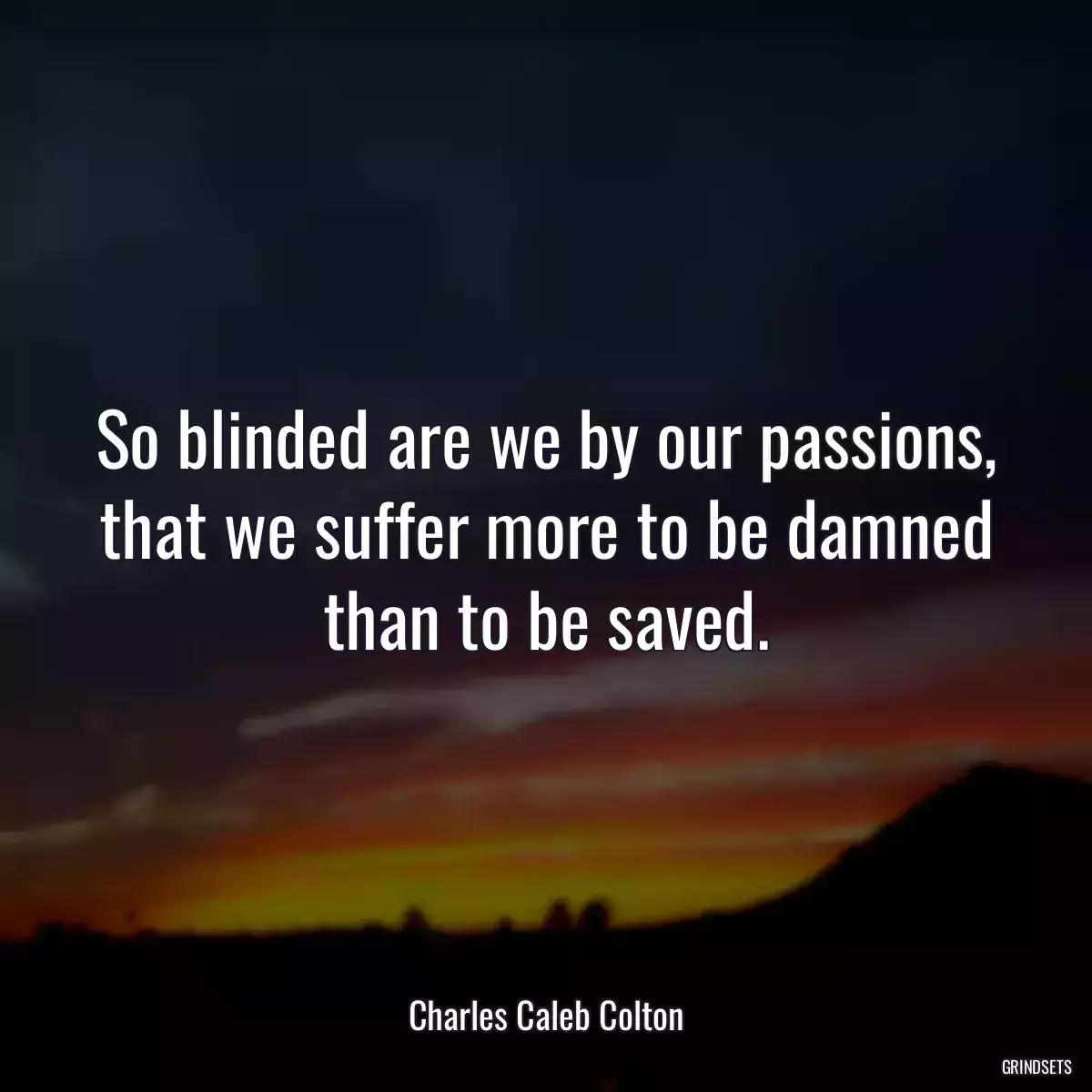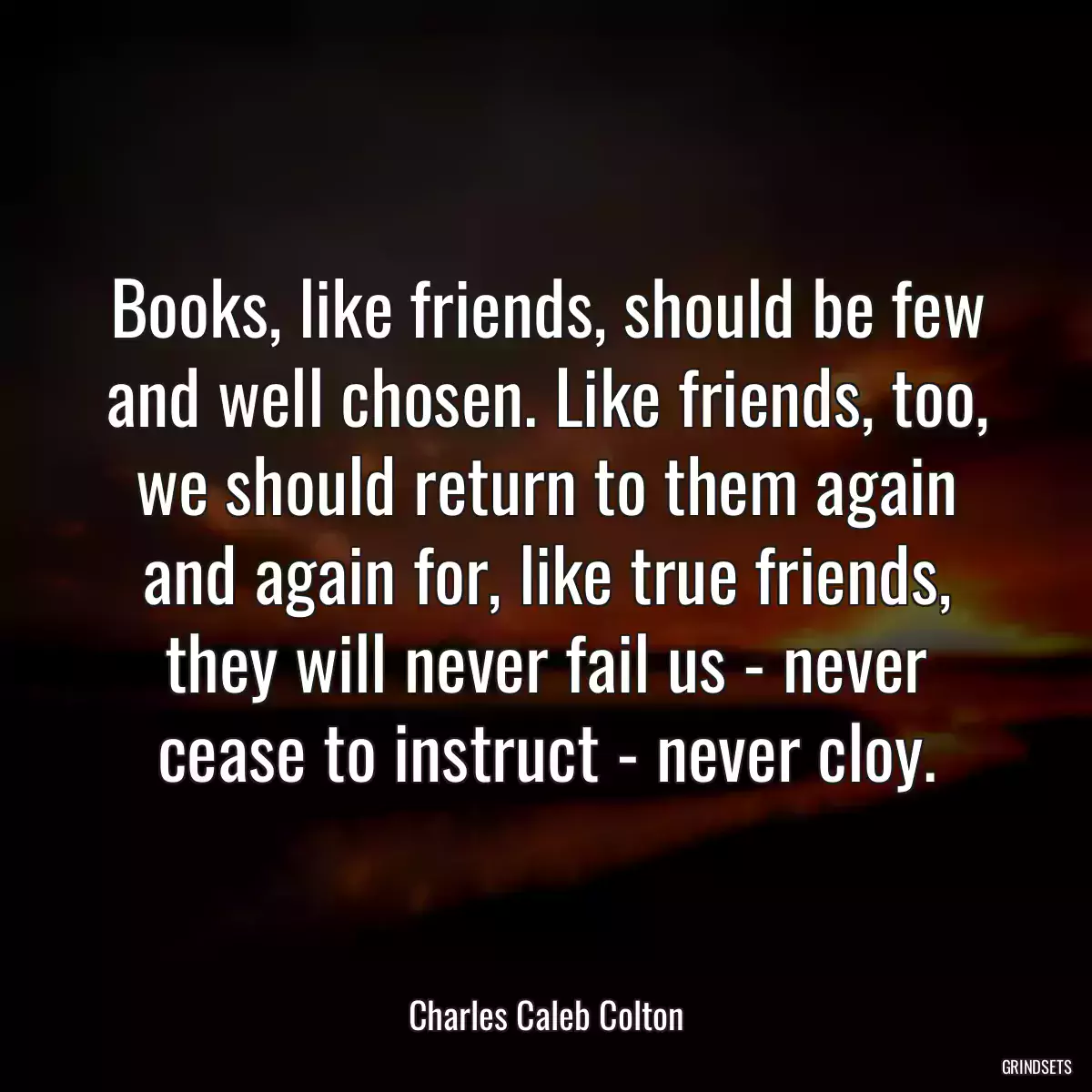
Quotes Charles Caleb Colton - page 6
Find dozens of Charles Caleb Colton with images to copy and share.

When young, we trust ourselves too much, and we trust others too little when old. Rashness is the error of youth, timid caution of age. Manhood is the isthmus between the two extremes; the ripe and fertile season of action, when alone we can hope to find the head to contrive, united with the hand to execute.
Persecuting bigots may be compared to those burning lenses which Lenhenboeck and others composed from ice; by their chilling apathy they freeze the suppliant; by their fiery zeal they burn the sufferer.
The consequences of things are not always proportionate to the apparent magnitude of those events that have produced them. Thus the American Revolution, from which little was expected, produced much; but the French Revolution, from which much was expected, produced little.
You may also like
The French revolution was a .eune invented and constructed for the purpose of manufacturing liberty; but it had neither lever cogs, nor adjusting powers, and the consequences were that it worked so rapidly that it destroyed its own inventors, and set itself on fire.
Criticism is like champagne, nothing more execrable if bad, nothing more excellent if good; if meagre, muddy, vapid and sour, both are fit only to engender colic and wind; but if rich, generous and sparkling, they communicate a genial glow to the spirits, improve the taste, and expand the heart.
No propagation or multiplication is more rapid that that of evil, unless it be checked; no growth more certain.
The firmest of friendships have been formed in mutual adversity, as iron is most strongly united by the fiercest flame.
Friendship, of itself a holy tie, is made more sacred by adversity.

We are not more ingenious in searching out bad motives for good actions when performed by others, than good motives for bad actions when performed by ourselves.
The only things in which we can be said to have any property are our actions. Our thoughts may be bad, yet produce no poison; they may be good, yet produce no fruit. Our riches may be taken away by misfortune, our reputation by malice, our spirits by calamity, our health by disease, our friends by death. But our actions must follow us beyond the grave; with respect to them alone, we cannot say that we shall carry nothing with us when we die, neither that we shall go naked out of the world.
Nobility of birth does not always insure a corresponding unity of mind; if it did, it would always act as a stimulus to noble actions; but it sometimes acts as a clog rather than a spur.
No two things differ more than hurry and dispatch. Hurry is the mark of a weak mind, dispatch of a strong one. A weak man in office, like a squirrel in a cage, is laboring eternally, but to no purpose, and is in constant motion without getting on a job; like a turnstile, he is in everybody's way, but stops nobody; he talks a great deal, but says very little; looks into everything but sees nothing; and has a hundred irons in the fire, but very few of them are hot, and with those few that are, he only burns his fingers.
Those that are the loudest in their threats are the weakest in their actions.
Villains are usually the worst casuists, and rush into crimes to avoid less. Henry VIII. committed murder to avoid the imputation of adultery; and in our times, those who commit the latter crime attempt to wash off the stain of seducing the wife by signifying their readiness to shoot the husband.